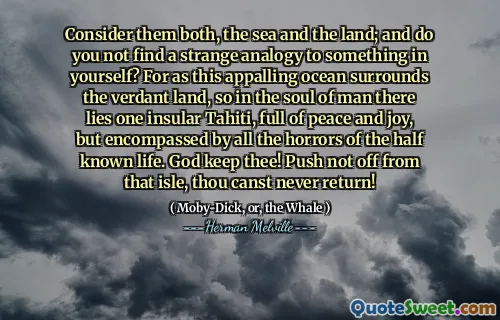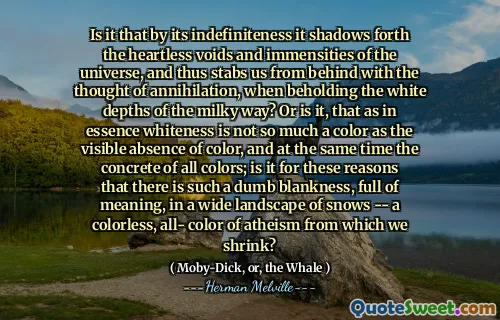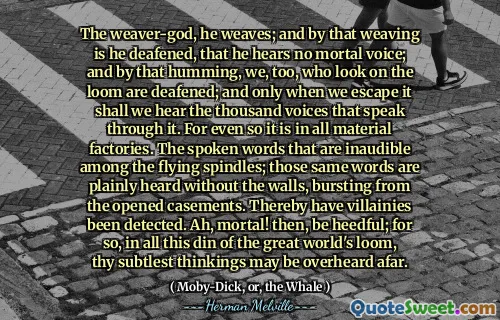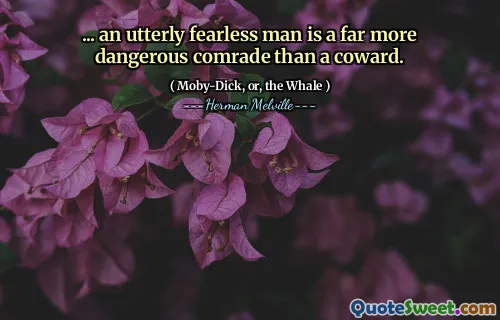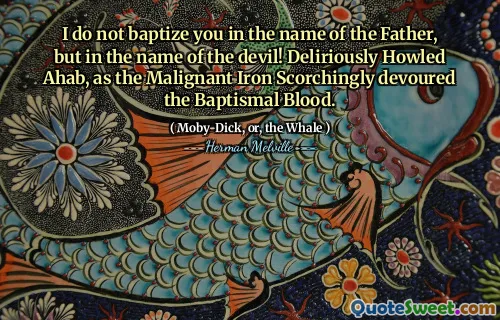
Nevertheless the sun hides not Virginia's Dismal Swamp, nor Rome's accursed Campagna, nor wide Sahara, nor all the million miles of deserts and of griefs beneath the moon. The sun hides not the ocean, which is the dark side of this earth, and which is two thirds of this earth. So, therefore, that mortal man who hath more of joy than sorrow in him, that mortal man cannot be true -- not true, or undeveloped.
This passage emphasizes the idea that joy cannot exist in isolation from sorrow. Melville suggests that the sun, representing happiness, does not illuminate the darker aspects of life, such as Virginia's Dismal Swamp or the vast deserts. These locations symbolize the universal struggles and griefs that exist alongside moments of happiness, indicating that all experiences are intertwined.
Moreover, Melville argues that a person who experiences more joy than sorrow lacks authenticity or development. True understanding and growth come from recognizing and confronting life's darker elements. This duality of joy and sorrow is essential to the human experience, highlighting that without the presence of hardship, true joy cannot be fully appreciated.
